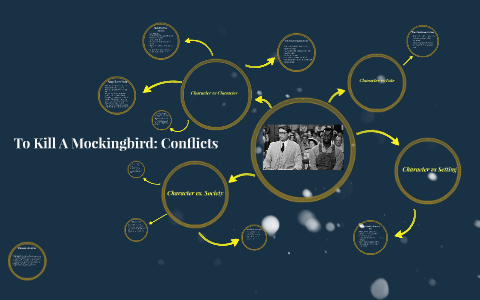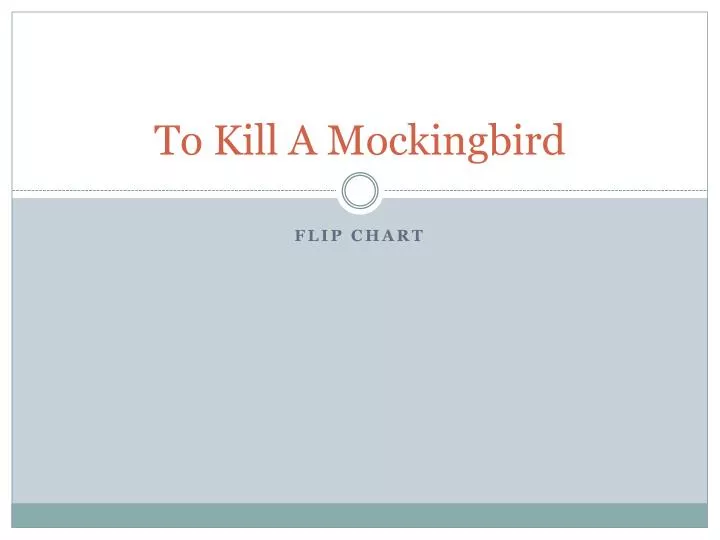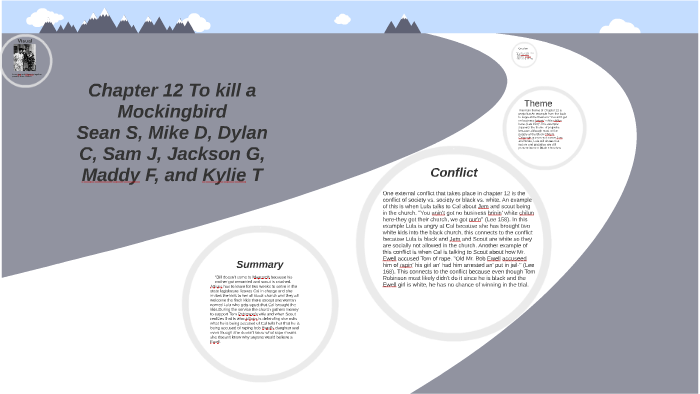The main conflict that emerges from chapter 5 exists between the kids (Dill, Jem and Scout) and Atticus. When the kids create their game, acting out One Man’s Family, and proceed to try to send a
Chapter 12 TKAM by Sean Spring on Prezi Next
Analysis: Chapters 4-6. These chapters serve primarily as a record of Jem and Scout’s childhood adventures with Dill and the specter of Boo Radley. Even as the children play the “Boo Radley game,” make their attempts to give a message to Boo, and peek through his shutters, Boo’s character is transformed from a monster into a human being.
Source Image: barnesandnoble.com
Download Image
Harper Lee’s novel To Kill a Mockingbird reveals the central conflict of society and humanity that is represented through Boo’s disagreements with the entire town Maycomb, the conflict between the black accused and the white justice system, Finch’s conflict with his neighbors, and, finally, the conflict between the children and the adult’s world.

Source Image: blog.prepscholar.com
Download Image
To Kill a Mockingbird Chapters 13-14 Presentation by Farzad Inam To Kill a Mockingbird isn’t a mystery novel, but this month it’s been puzzling a few Library of Congress staff members.. Harper Lee’s tale of conflict in a small Alabama town is a perennial favorite with teachers. The Library’s lesson plan “To Kill a Mockingbird: A Historical Perspective”, which uses photos and oral histories from the Library’s collections, has always been fairly

Source Image: prezi.com
Download Image
What Is The Conflict Of To Kill A Mockingbird
To Kill a Mockingbird isn’t a mystery novel, but this month it’s been puzzling a few Library of Congress staff members.. Harper Lee’s tale of conflict in a small Alabama town is a perennial favorite with teachers. The Library’s lesson plan “To Kill a Mockingbird: A Historical Perspective”, which uses photos and oral histories from the Library’s collections, has always been fairly To Kill a Mockingbird explores themes of heroism and the idea of role models as well. Lee has stated that the novel was essentially a long love letter to her father, whom she idolized as a man with deeply held moral convictions. Atticus is clearly the hero of the novel, and functions as a role model for his children.
To Kill A Mockingbird: Conflicts by Joe Allan on Prezi Next
In To Kill a Mockingbird, conflict is not only present, but it is a very apparent element. Much of the conflict arises from the prejudices of the people of Maycomb. Examples of To Kill a Mockingbird Conflict MAN vs. SELF: The Sheriff vs. Himself When Boo kills Ewell, the sheriff must decide whether to lie, or to arrest Boo. PPT – Lecture 3: Narrative Structure of To Kill a Mockingbird: Plot Structure and Perspective PowerPoint Presentation – ID:6101222

Source Image: slideserve.com
Download Image
PPT – To Kill A Mockingbird PowerPoint Presentation, free download – ID:1185004 In To Kill a Mockingbird, conflict is not only present, but it is a very apparent element. Much of the conflict arises from the prejudices of the people of Maycomb. Examples of To Kill a Mockingbird Conflict MAN vs. SELF: The Sheriff vs. Himself When Boo kills Ewell, the sheriff must decide whether to lie, or to arrest Boo.

Source Image: slideserve.com
Download Image
Chapter 12 TKAM by Sean Spring on Prezi Next The main conflict that emerges from chapter 5 exists between the kids (Dill, Jem and Scout) and Atticus. When the kids create their game, acting out One Man’s Family, and proceed to try to send a

Source Image: prezi.com
Download Image
To Kill a Mockingbird Chapters 13-14 Presentation by Farzad Inam Harper Lee’s novel To Kill a Mockingbird reveals the central conflict of society and humanity that is represented through Boo’s disagreements with the entire town Maycomb, the conflict between the black accused and the white justice system, Finch’s conflict with his neighbors, and, finally, the conflict between the children and the adult’s world.

Source Image: prezi.com
Download Image
To Kill a Mockingbird by Harper Lee – Literary Conflict: Our literary conflict storyboard for To Kil… | To kill a mockingbird, Character lessons, Literary conflicts Plot summary scene from To Kill a Mockingbird (From left) Estelle Evans, Phillip Alford, and Mary Badham in To Kill a Mockingbird (1962), directed by Robert Mulligan.

Source Image: pinterest.com
Download Image
Analyze the use of symbolism in Harper Lee’s To Kill a Mockingbird – My Exam Solution To Kill a Mockingbird isn’t a mystery novel, but this month it’s been puzzling a few Library of Congress staff members.. Harper Lee’s tale of conflict in a small Alabama town is a perennial favorite with teachers. The Library’s lesson plan “To Kill a Mockingbird: A Historical Perspective”, which uses photos and oral histories from the Library’s collections, has always been fairly

Source Image: myexamsolution.com
Download Image
The Portrayal of Good and Evil in *To Kill A Mockingbird* | by emilie gosselin | some writing | Medium To Kill a Mockingbird explores themes of heroism and the idea of role models as well. Lee has stated that the novel was essentially a long love letter to her father, whom she idolized as a man with deeply held moral convictions. Atticus is clearly the hero of the novel, and functions as a role model for his children.

Source Image: medium.com
Download Image
PPT – To Kill A Mockingbird PowerPoint Presentation, free download – ID:1185004
The Portrayal of Good and Evil in *To Kill A Mockingbird* | by emilie gosselin | some writing | Medium Analysis: Chapters 4-6. These chapters serve primarily as a record of Jem and Scout’s childhood adventures with Dill and the specter of Boo Radley. Even as the children play the “Boo Radley game,” make their attempts to give a message to Boo, and peek through his shutters, Boo’s character is transformed from a monster into a human being.
To Kill a Mockingbird Chapters 13-14 Presentation by Farzad Inam Analyze the use of symbolism in Harper Lee’s To Kill a Mockingbird – My Exam Solution Plot summary scene from To Kill a Mockingbird (From left) Estelle Evans, Phillip Alford, and Mary Badham in To Kill a Mockingbird (1962), directed by Robert Mulligan.